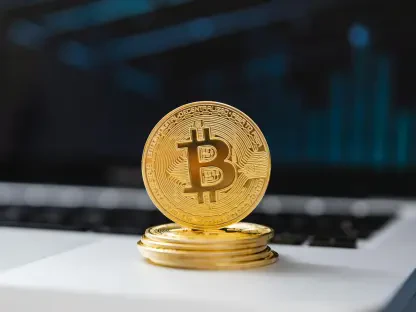In a startling development that has sent ripples through the decentralized finance (DeFi) community, a prominent protocol has once again fallen victim to a sophisticated cyberattack, marking its third significant breach in under two years. This latest incident, which resulted in a staggering loss of approximately $1.77 million, has reignited debates about the inherent vulnerabilities in DeFi systems and the urgent need for enhanced security measures. The platform, known for its lending and stablecoin offerings, was exploited on a recent October day, with hackers manipulating critical components of its infrastructure. As reported by blockchain security experts, the attackers funneled a portion of the stolen funds through a crypto mixer to obscure their tracks, while retaining control over a substantial amount in a known wallet. This breach not only highlights the persistent risks faced by such protocols but also raises pressing questions about user trust and the future of decentralized financial systems.
Security Challenges in DeFi Protocols
Persistent Vulnerabilities Exposed
The recent exploit of this DeFi platform underscores a troubling pattern of security lapses that have plagued the project over recent years. With this third major hack, the protocol has now lost a cumulative sum nearing $20 million across multiple incidents, including a $6.5 million flash loan attack last year and a devastating $13 million loss due to a collateral liquidation flaw earlier this year. Security analysts point to the complexity of interconnected smart contracts as a primary weak point, where even minor flaws can be leveraged with catastrophic consequences. The intricate design of these systems, while innovative, often leaves them exposed to sophisticated attackers who continuously probe for vulnerabilities. Blockchain security firms have noted that the latest breach involved the transfer of 51 ETH through a transaction-obscuring tool, while 344 ETH, valued at roughly $1.55 million, remains in the hacker’s control. This recurring issue signals a critical need for robust auditing and real-time monitoring to prevent future losses in an increasingly hostile digital landscape.
Broader Implications for the Industry
Beyond the immediate impact on this specific protocol, the incident casts a spotlight on systemic risks within the broader DeFi sector. Many platforms, built on the promise of decentralization and financial autonomy, struggle to balance innovation with security due to the inherent challenges of open-source code and complex financial mechanisms. Experts argue that the rapid growth of DeFi has outpaced the development of adequate safeguards, leaving billions in user funds at risk. This latest hack serves as a stark reminder that attackers are evolving alongside the technology, exploiting gaps that developers often overlook in their rush to deploy new features. The industry now faces growing scrutiny from regulators and users alike, who demand greater accountability and protection. As DeFi continues to attract mainstream attention, incidents like this could deter potential adopters, slowing the momentum of a sector once hailed as the future of finance. Addressing these vulnerabilities will require collaborative efforts across developers, auditors, and the community to establish stronger security standards.
Community and Market Reactions
Response from Leadership and Users
In the aftermath of this significant breach, the response from the protocol’s Decentralized Autonomous Organization (DAO) and its community has come under intense scrutiny. The DAO swiftly announced plans to utilize reserve funds to repurchase affected stablecoin tokens, aiming to stabilize the ecosystem and mitigate user losses. However, the limited communication from the core team has sparked frustration among stakeholders. With the official social media presence dormant for weeks prior to the hack and only a brief statement issued via community channels, many users feel left in the dark about the specifics of the exploit and the roadmap for recovery. This lack of transparency during a crisis has fueled criticism, with community members voicing concerns over the project’s reliability and governance. Trust, a cornerstone of any financial platform, appears to be eroding as users question whether the leadership is equipped to handle recurring security challenges. The incident highlights the importance of clear, timely updates to maintain confidence during turbulent times.
Market Impact and Investor Sentiment
The financial repercussions of the hack were immediately evident in the market, as the protocol’s native token experienced a sharp, albeit temporary, decline in value following the news. Traders reacted by offloading holdings, reflecting a dip in confidence that often accompanies such breaches in the volatile crypto space. However, signs of recovery emerged after the DAO’s commitment to compensation became public, suggesting that some investors remain cautiously optimistic about the project’s ability to rebound. Despite this stabilization, lingering doubts persist, with many awaiting a comprehensive explanation and actionable security upgrades from the development team. Market analysts note that repeated incidents can have a lasting effect on investor sentiment, potentially driving away long-term supporters if trust is not restored. The delicate balance between innovation and reliability in DeFi is once again tested, as stakeholders weigh the risks against the promise of decentralized financial solutions. This event serves as a critical juncture for the protocol to prove its resilience.
Final Reflections on a Troubled Path
Looking back, the $1.77 million loss marked yet another challenging chapter for a DeFi protocol already burdened by a history of security failures. The pattern of breaches, with nearly $20 million lost over multiple incidents, painted a picture of systemic issues that demanded urgent attention. The DAO’s efforts to stabilize the ecosystem through token repurchases showed a commitment to recovery, yet the muted communication left many users and investors skeptical. This series of events underscored a pivotal moment for the platform, where rebuilding trust became as crucial as fortifying technical defenses. Moving forward, the focus shifted to implementing rigorous security audits, fostering transparent dialogue with the community, and adopting industry best practices to prevent further exploits. For the broader DeFi landscape, this incident served as a cautionary tale, urging all stakeholders to prioritize robust protections over rapid innovation. Only through such measures could confidence be restored, ensuring that decentralized finance fulfills its transformative potential without falling prey to recurring threats.









